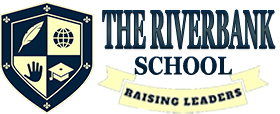Mathematics
Overview
We believe Maths is fun – we want our pupils to discover the joys of number patterns and problem solving, and how mathematics underpins so many aspects of the real world. Our lessons involve pupils participating in a wide range of learning activities, including card matching activities, interactive games and puzzles, show and tell whiteboards, use of the internet and maths software, poster making, open-ended investigations and experiments. Maths is relevant, even the much maligned quadratic equations have many applications in the real world. They are useful as they explain the golden ratio and the perfect shape for photographs, the pattern of sunflower seeds, the orbits of the planets, how telescope lenses and satellite dishes work, the braking distance of cars, circuit boards in mobile phones and the perfect drop-goal. Maths explains so many facets of the world we live in. Look into anything enough and you will find mathematics!
We believe Maths is rewarding, whether it’s the self-esteem we enjoy from cracking a tricky maths puzzle or the knowledge that numeracy and problem solving skills are in great demand with employers, there is no doubt that pupils can reap the benefit of studying maths. In fact, a recent study showed that employees with Maths A Level earn 10-15% more on average than employees with other A Levels. There’s so much more to Maths – we encourage our pupils to undertake Mathematics enrichment activities, such as poster, reward postcard and logo design competitions where pupils can explore interesting areas of mathematics beyond the specifications. Recent investigations include Famous Mathematicians, Famous and Favourite Numbers, Fractals and Careers in Mathematics. There are opportunities to take part in national and local Maths Challenges and attend Maths lectures and roadshows.
Curriculum
As a National Curriculum subject, Mathematics is compulsory in Years 7 – 11. Our students will be taught to work confidently and effectively at a suitable level and pace, with both an appropriate level of support and opportunities to explore the mathematical ideas in greater detail.
Key Stage 3
In Years 7 & 8, pupils study number, algebra, ratio and proportion, geometry and measures, probability and statistics. Learning activities will cultivate the pupil’s thinking skills and put the maths that they are learning in context. In addition, mathematical investigations and problem solving will be used to ignite the love for mathematics in the students by exploring the practical applications of mathematics.
Key Stage 4
In Years 9, 10 & 11 pupils will study for the Mathematics IGCSE at the appropriate level, either Higher or Foundation levels. There will be three examination papers at the end of Year 11 and a calculator may be used in two of the papers. The areas of study are number, algebra, ratio, proportion and rates of change, geometry and measures, probability and statistics. In Year 11, a selection of pupils will have the opportunity to study Additional Mathematics which is a bridging qualification to prepare students for sixth form Mathematics.
Educational visits and extra-curricular activity
There are so many extra-curricular areas of Maths for pupils to get involved with:
‘Insert a name’ Maths Club (named after Pythagoras’s adage that numbers rule the universe)
This takes place once a week for enthusiastic KS3 mathematicians to explore facets of mathematics (puzzles, ideas and magic) beyond the scope of the curriculum.
Maths Surgery/ workshops
There is a drop-in session for all pupils to seek individual support with their homework assignments and to prepare for the coming examinations.
Fun Maths Roadshow
An annual opportunity for our KS3 to spend time solving a range of hands-on problems and puzzles of varying levels of difficulty.
Maths Challenges/ Olympiads
Our top set pupils take part in national Maths Challenge Competitions throughout the year. These challenges pit our pupils’ abilities to solve intriguing problems against the best mathematicians in the country and from all around the world
Events
The Maths department will celebrate the World Pi Day (on 3/14), World Maths Day (by competing in maths competitions online against international students) as part of Numbers Day.
Rooms and resources
The department’s teaching is predominantly based in the classrooms; all equipped with interactive whiteboards, student mini-whiteboards and classroom activity files with other learning resources. Teaching and learning will also take place in the ICT lab because the department utilizes offline learning softwares and subscribes to a variety of websites to support the teaching and learning of Mathematics which are accessible to all students both in school and at home.
[gs_logo]




